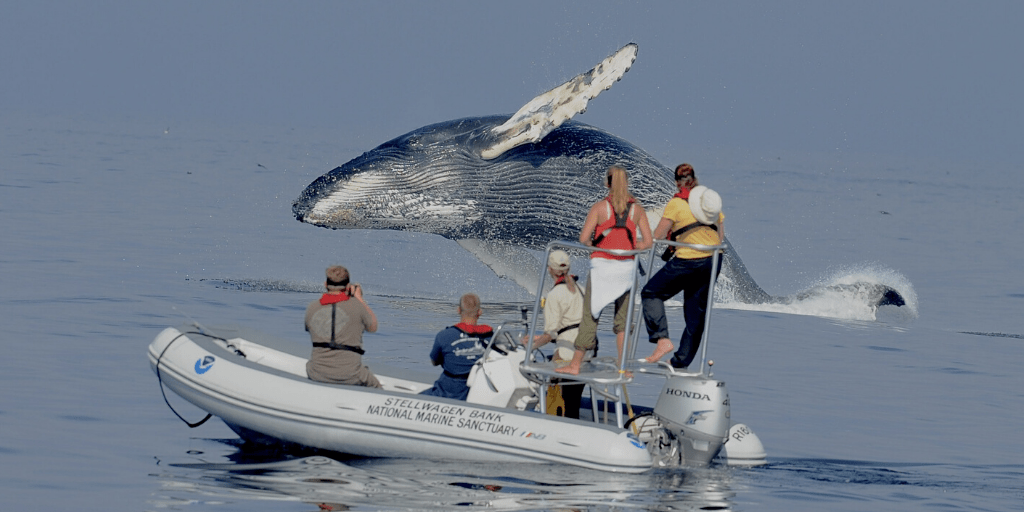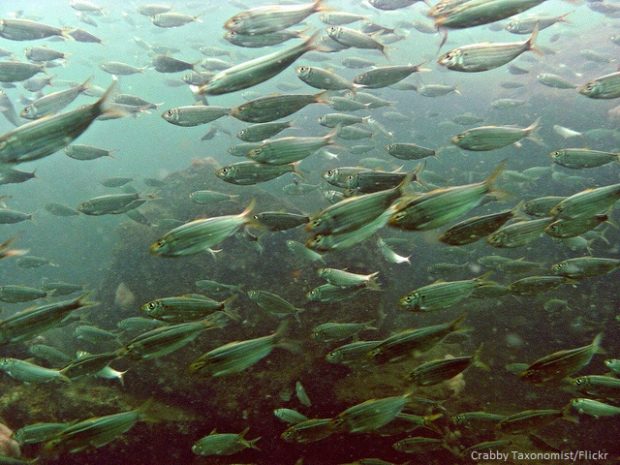We have much more to do and your continued support is needed now more than ever.
Are You a Whale Watcher, Saltwater Angler, or Birder?

A decision is about to be made that could greatly help the conservation of wildlife from humpback whales to striped bass to osprey. And it all centers around a tiny fish called menhaden.
In many ways, the way our government manages saltwater commercial and sportfishing makes America a world leader in fisheries conservation. Despite the recovery of many important fisheries, numerous species are still in decline. This week, the Atlantic States Marine Fisheries Commission, which manages marine fisheries from Maine to Florida, has an opportunity to take fisheries management into the 21st century and expand our legacy of conservation.
Among many challenges of our management system, a glaring one is that fish are managed as “single species”—that is, if a fishery declines, then actions are taken to recover that individual population. However, as anyone who has taken a middle-school earth science class can probably tell you, ecosystems are made up of incredibly complex food webs, and significant changes in any one species can reverberate throughout the whole web. This makes single-species management risky, because the needs of other wildlife that depend on the managed species may not be taken into account.

There is no better example of the role fish can play in a food web than the Atlantic menhaden. This small, oily fish is highly sought after prey for striped bass, eagles, osprey, humpback whales, and many other nearshore fish and wildlife. Menhaden have been managed as a single species for years, and while there has been a noticeable recovery of the population, it is not clear if we are keeping enough of this important fish in the ocean to accommodate the needs of predators. As an example, New York City has had a massive increase in the number of humpback whales in nearby waters in recent years in large part thanks to the recovery of menhaden.
Considering the Whole Ecosystem
We strongly support the Atlantic States Marine Fisheries Commission adopting what are known as “ecological reference points” to manage menhaden moving forward. This cutting edge approach to fisheries management includes models of predator needs when determining how much of a species can be harvested. Using ecological reference points will help not only the wildlife we are all drawn to, like humpback whales, but will improve the overall ecosystem and benefit other fish species caught by commercial anglers. Over the long run, managing the ecosystem in its entirety rather than individual species should benefit everyone with a stake in marine fisheries.
Whether you are a birder, a saltwater angler, or a whale watcher, menhaden are an incredibly important part of the forage base that supports species such as striped bass, osprey, bald eagles and humpback whales, and we support further steps to recognize their ecological importance. In 2017, the Atlantic States Marine Fisheries Commission committed to developing menhaden-specific ecological reference points to manage menhaden for their important role in coastal food webs, and we strongly support the adoption of this model. Furthermore, the commission must recognize that continued management of menhaden to benefit other species requires no further catch increases.
Please join us in urging the commission to make the right decision for whales, saltwater fish and birds by liking and retweeting the following message!





















